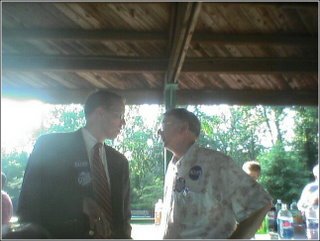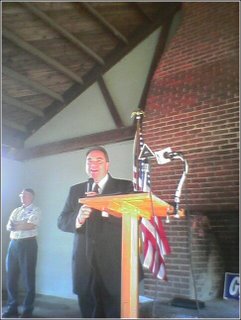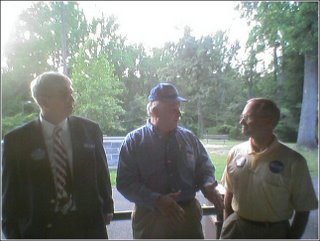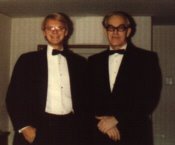Flag Fetishization Fails

Shame on the United States Senate! On Tuesday, the world's greatest deliberative body came within one vote of amending the U.S. Constitution to permit Congress to ban flag burning and other forms of flag desecration.
Thanks to the votes of two principled conservatives -- Republican Senators Robert Bennett of Utah and Mitch McConnell of Kentucky -- the amendment failed to get the necessary two-thirds majority to be forwarded to the states for ratification
Still, with 66 votes in favor, that means that 14 Democrats and 52 Republicans have so little respect for the Bill of Rights that they are willing to amend it for rancidly demagogic, election-year gain.
The "conservative" case for flag-burning bans -- laws that would put the United States in the rarefied company of Communist China, Castro's Cuba, theocratic Iran, and Iraq before the overthrow of Saddam Hussein -- rests on the thin reed that flag desecration is disrespectful to U.S. armed forces who fought for freedom in foreign wars.
Balderdash! The most effective and poignant arguments against the amendment come from battle-scarred veterans. For instance, notes Charles Babington in today's Washington Post:
Flag burning "is obscene, painful and unpatriotic," Sen. Daniel K. Inouye (D-Hawaii), who lost an arm in World War II, said in a floor speech yesterday. "But I believe Americans gave their lives in the many wars to make certain that all Americans have a right to express themselves -- even those who harbor hateful thoughts."After noting the opposition to the amendment of his own father, who flew 33 combat missions over Nazi Germany, Jonathan Alter writes in Newsweek of two other prominent veterans:
Our understandable outrage at flag burning shouldn’t turn our brains to mush. “I feel the same sense of outrage, but I would not amend that great shield of democracy [the Constitution] to hammer a few miscreants,” Colin Powell said when the issue last came up (his position has not changed). “The flag will be flying proudly long after they have slunk away.” Powell argues that a constitutional ban on flag burning is a sign of weakness and fear. Note: The other countries that have banned flag burning include Cuba, China, Iran and Saddam Hussein’s Iraq.I have written about this issue before, most recently last month, when I cited stories (by Nat Hentoff and libertarian Republican Tom Walls) about veterans who oppose the flag-burning amendment. In that post, I linked the proposed amendment to other attempts by Congress and the Bush administration to circumscribe our First Amendment right to free speech.
John Glenn, another of the thousands of combat veterans against the amendment (they have banded together in a group called Veterans Defending the Bill of Rights), notes that “those 10 amendments we call the Bill of Rights have never been changed or altered by one iota, not by one word, not a single time in all of American history. There was not a single change during any of our foreign wars, and not during recessions or depressions or panics. Not a single change when we were going through times of great emotion and anger like the Vietnam era, when flag after flag was burned or desecrated. There is only one way to weaken our nation. The way to weaken our nation would be to erode the freedom that we all share.”
In a blogpost last year (when the amendment was being considered by the House of Representatives), John Scalzi described how an anti-flag-burning law could be circumvented, noting:
"Protecting" the flag with a Constitutional Amendment won't solve the not-at-all pressing problem of people burning flags for political protest. They'll still do it. They'll simply do it in ways that will now additionally mock the stupidity of those who love the symbol of American freedoms more than they love actual American freedoms. And no matter how expansively Congress defines "the American Flag" there will always be something that is not the flag, but is close enough in its shape and structure to feel just like the flag. And there will be the people who will use that not-quite-flag-like object to protest.In an article originally written for the libertarian publication, The Freeman, blogger Doug Mataconis of Below the Beltway cut to the logical core of the flag-burning "debate":
Mitch McConnell has proven to be a real hero to those who value the First Amendment, even while so many of his Senate colleagues regard it with contempt. McConnell spearheaded the drive to defeat the McCain-Feingold campaign finance reform law, which places limits on political speech. (Oddly, Senator John McCain voted for the speech limitations of the flag burning amendment, while Senator Russ Feingold voted against it. No one has accused politicians of consistency in their lack of principle.)In adopting the position of the opponents of the Supreme Court decision, one would have to accept the seemingly contradictory idea that in order to protect the symbol of a nation founded on individual liberty, one must restrict individual liberty. Taking this position also leads one into dangerous territory in relation to other areas of action or thought and the effect that they might have on the rest of society. After all, if flag burning can be banned because a majority of the public are offended by an attack on what they believe to be a sacred symbol, then why not extend the ban into other areas where an individual’s actions might be offensive to others? If we ban flag burning, then why not ban movies or books that depict in an offensive way religious figures or other subjects considered to be sacred? Why not ban magazines, films, or groups that offend the sensibilities of women, blacks, Jews, or any other minority group?
A person who opposes flag burning may argue that he would not extend his logic as far as that in the above examples. But the reasoning behind these examples and that behind flag burning are of the same majoritarian parentage: the belief that if a sufficiently large number of people find an activity offensive then they can use the coercive power of the state to regulate or, preferably, to ban that activity.
The problem, then, with taking the position that the flag should be protected even at the expense of individual liberty is not that flag burning or any other activity deemed to be offensive has some sort of redeeming value, or that symbols such as the flag are unimportant, but that in banning these activities, one is accepting a principle that is ultimately destructive of a free society. By accepting this principle, we are allowing for the creation of a society wherein appropriate expressions of patriotism, appropriate forms of artistic expression, and appropriate activities are decided by a process of majority rule that, rather than minimizing conflict in society, heightens it to a dangerous degree.
I am glad that I am writing about the amendment's defeat today. That is one less bit of political pandering we have to worry about in the future. That is, until the next federal election year.

































